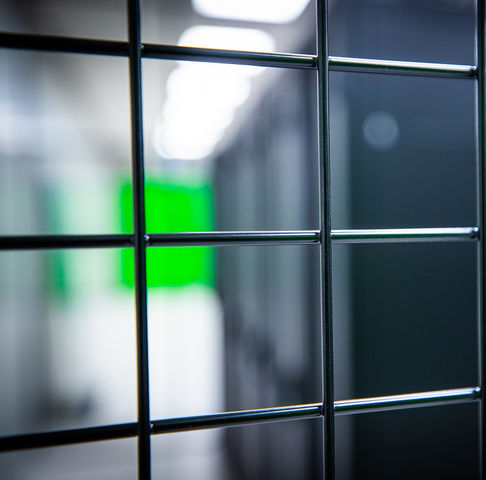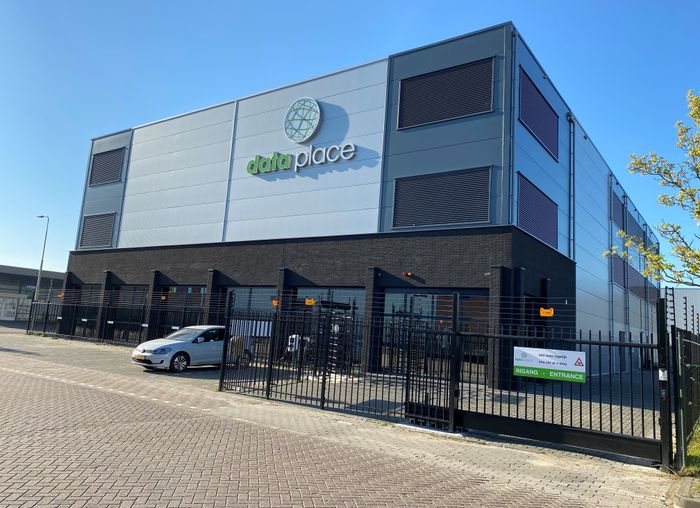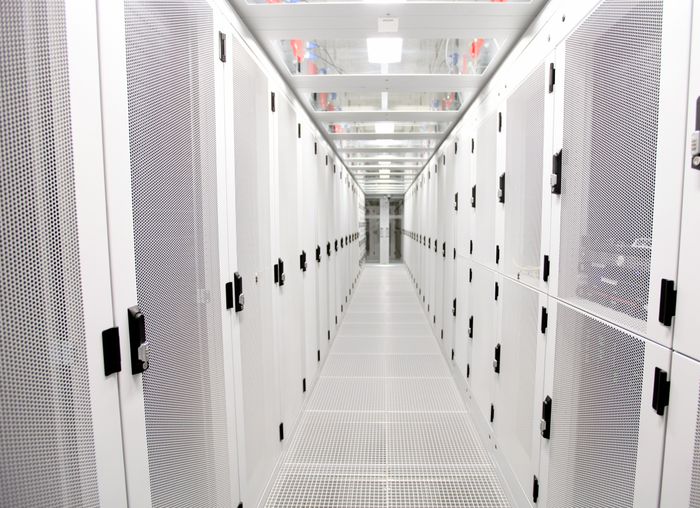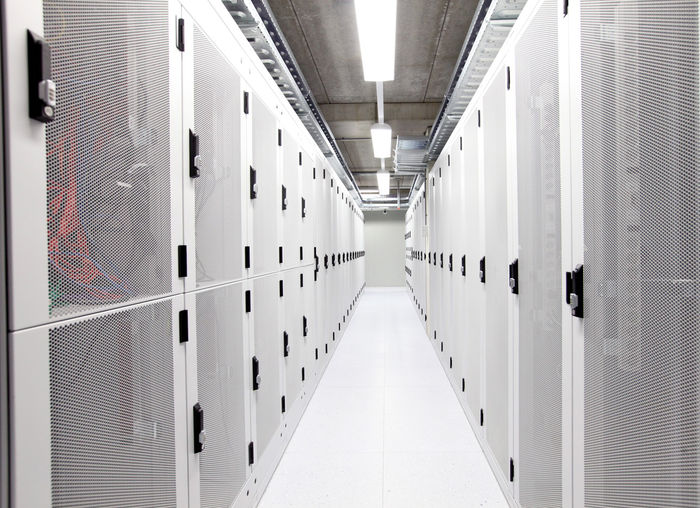What is a data center?
A data center is a large, industrial and highly secured building that is designed with one important goal: to ensure that servers continue to run 24/7 and 365 days a year and that data is always available and accessible. For example, a data center outage could prevent you from paying with your bank card or accessing important transactional data when you want to close a business deal. A professional data center is equipped with facilities such as:
-
Good cooling and climate control systems;
-
A high-quality power supply;
-
Fast network connections;
-
Physical security.
All these facilities are redundant, which means that they are implemented multiple times. So there is always a backup available if one of the systems breaks down.
Eurofiber Cloud Infra data centers
The digitalization of society and the economy is progressing rapidly. And data is the precious working capital that modern companies nowadays rely on to improve their services. It goes without saying that you want to manage that information properly and securely. A good and safe data center quickly becomes a must. On this theme page you will find extensive information about everything that has to do with data centers.
What types of data centers are there?
Data centers come in different shapes and sizes. Time to take a closer look at the most important types.
1. National and regional data center
A national data center has locations all over the country. This is often a big advantage, because there is a good chance that there is a data center "around the corner". The short distance saves connection costs, but also benefits the rapid availability of information. Because a national data center has multiple locations, it is also easier to limit the risks of downtime. A regional data center is often limited to a few locations within a particular province or region.
2. Multitenant and single-tenant
Data centers can manage the data of multiple customers (multi-tenant), but also focus on just one customer (single-tenant). The largest single-tenant data centers (hyperscales) are huge structures that serve global internet giants such as Google, Microsoft, Facebook and Amazon. International data centers often operate as "digital gateways" to the rest of Europe.
3. Tier levels
In addition, data centers are divided into so-called tier levels (one to four) based on their availability level. Data centers with the tier 4 label meet the highest conceivable requirements in terms of availability, redundancy and the reduction of downtime.
Tier 1 guarantees a certain basic capacity, while Tier 2 provides basic redundancy (a double version of all cooling and power supplies). A Tier 3 data center ensures that equipment replacement and maintenance can take place without downtime, thanks to an additional delivery path for power and cooling.
Look at our data centers in Amsterdam, Arnhem, Brabant, Nedzone, Utrecht and Rotterdam.
What are the benefits of using a data center?
Storing your data in a reliable data center has countless benefits. We have listed the most important ones for you.
-
Good storage facilities: Data centers have facilities such as cooling, connectivity, storage capacity and security that are difficult to realize within your own organization.
-
Cost Savings: Data centers have the resources to provide network equipment and can connect them to other network service providers with minimal cost and complexity.
-
Redundant connections ensure that important information is always available.
-
A combination of physical security (camera surveillance, access control), network security (the latest antivirus software and firewalls) and procedural security (NEN and ISO certifications) ensure that your business-critical and privacy-sensitive data is always safe.
-
Scalability: with data center space or colocation you can expand flexibly and quickly when desired or when the need arises. An additional advantage is that you only pay for the space and energy that you actually use.
-
Risk management: colocation is a good strategy to ensure continuity even in an emergency, regardless of whether you use a data center as a primary site for servers or as a 'mirror site' (external copy location) to ensure constant connectivity during outages on the primary location. With a data center you spread the risks.
What types of businesses use a data center?
Nowadays there are many organizations that use a data center. This mainly concerns the types of companies and institutions listed below.
-
Universities, colleges and research laboratories. These settings often use heavy mainframes and clusters to perform complex calculations.
-
Companies located in the vicinity of important internet exchange points. They expect to get the fastest connections and the highest degree of reliability there.
-
Large companies or organizations that specialize in providing services. This certainly applies to companies whose services must be available 24 hours a day. Consider, for example, a hospital, where continuous access to patient data is a must.
-
Tech and telecom companies that generate and process a lot of data and are highly dependent on a properly functioning IT infrastructure.
-
Government and municipalities.
Read the references of companies using Dataplace datacenters.
How many data centers does the Netherlands have?
The Netherlands is an attractive country for setting up data centers. The reason? The combination of a favorable location, good network infrastructure and the presence of one of the world's largest internet exchange points.
In total, the Netherlands has more than six thousand data centers. Most of these belong to companies themselves, such as providers and multinationals. The regions of Amsterdam and Haarlemmermeer have traditionally been the "data center hotspots", but in those municipalities there is currently a construction freeze for new data centers. Noord-Brabant, a technology province par excellence, is emphatically setting itself up as an increasingly important data center region. Dataplace, now part of Eurofiber Cloud Infra, has six data centers at different locations in the Netherlands, as shown in the image to the right.
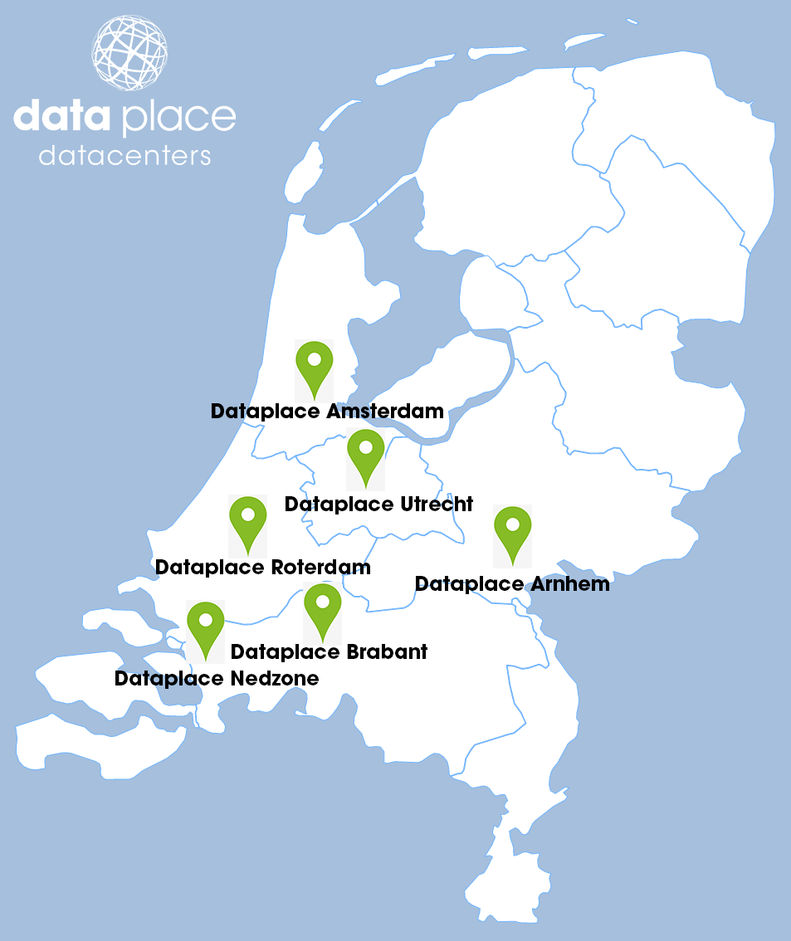
What are the costs of using a data center?
But what are the costs of using a data center? The price is tailor-made and first of all depends on your IT infrastructure (think of the amount of servers, the total capacity, the actual energy use) and the capacity that you purchase.
Why choose Data center as a Service (DCaaS)?
Are you opting for data center-as-a-service (DCaaS)? Then from now on you will hardly have any operational concerns about your IT infrastructure. Security, data center access, cooling and network connectivity; it is all arranged by a specialized and knowledgeable partner, so that you can fully focus on your core activities.
Is DCaaS also a good solution for your organization? Are you curious about the possibilities? Then you have come to the right place at Eurofiber Cloud Infra. We are not just a service provider, but a reliable and full-fledged partner. Curious about what we can do for you? Feel free to contact us or request a quote.



ContactOur experts
Would you like to know more about our data centers?
We are glad to be of assistance.
